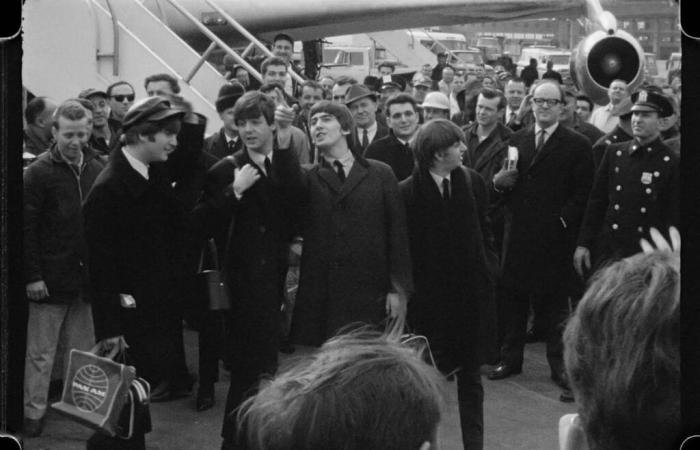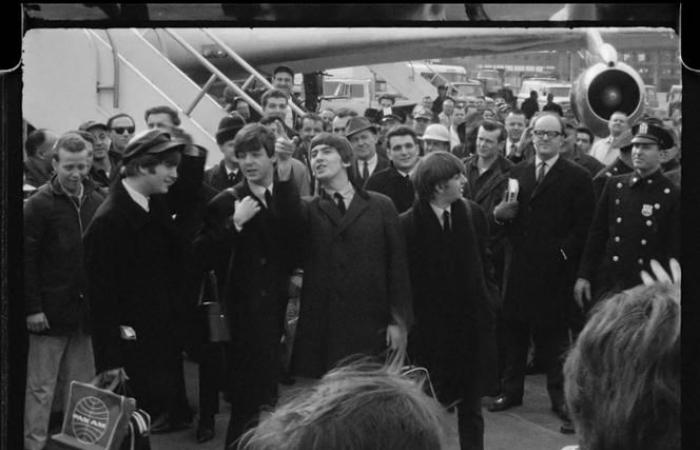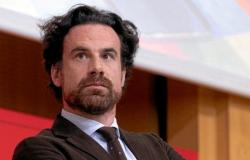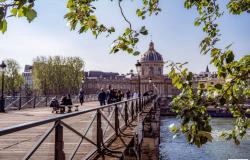DISNEY+ – ON DEMAND – DOCUMENTARY
To the normally constituted Beatlesmaniac (a Western boomer), everything was given: records, films, photographs… then alternative takes and demos, scraps of film or video tapes and contact sheets. The existence of John, Paul, George and Ringo was chronicled day by day, and – at times – minute by minute.
Read the review: With “The Beatles: Eight Days a Week”, on Arte, a look back at the birth of Beatlemania
Read later
So much so that the arrival of Beatles ’64 appears to be a gesture that is at best superfluous and at worst cynical. What more can we show from the arrival of the Liverpool quartet in the United States in February 1964, guests of the most popular show of the moment, “The Ed Sullivan Show”? The musical performances are available on YouTube and those compulsive have managed to watch What’s Happening ! The Beatles in the USAshot on the spot by Albert and David Maysles, whose images provide much of the material for Beatles ’64.
However, director David Tedeschi, who was the editor of the last documentaries by Martin Scorsese (producer of Beatles ’64), manages to give this new version of a story so often told a dimension that goes beyond the constantly renewed pleasure of hearing and seeing these young people on the verge of being deified. The aim is to demonstrate that the evening of February 9, 1964 was, for the United States, a decisive moment which transformed American society as surely as the assassination of President Kennedy, three months earlier.
This is a narrowly national point of view. In the United Kingdom and Europe, the Beatles had already gone from being pop artists to becoming a social phenomenon. They headlined at the Olympia in Paris, just before taking the plane from London to the New York airport recently renamed after the assassinated president.
Excess and fragility
The Maysles brothers having been as interested in the fans, who were waiting in their thousands for the British group, as in the musicians themselves, the film gives an idea of the emotion which gripped an entire city, and soon an entire country. The interviews interrupted by sobs and screams of the young girls who stand idly in front of the Plaza Hotel respond to the shots of the Beatles cloistered in their suite, forced to accept the invasive presence of the DJ (term which then designated the presenters of radio) Murray the K. The contrast between the disproportion of the event (73 million Americans watched “The Ed Sullivan Show”) and the fragility of its organization is striking.
To this original material, David Tedeschi added other archival documents – including a meeting between John and Yoko Ono-Lennon and Marshall McLuhan. Paul McCartney and Ringo Starr, aged versions, recount their memories – a touching sequence shows the drummer taking a tour of the owner in the wardrobe where his stage outfits are stored in front of a delighted Martin Scorsese.
The interventions of Smokey Robinson and Ronald Isley, respective creators of You’ve Really Got A Hold On Me and of Twist and Shout (two titles covered by the Beatles on their first albums) remain in memory. Alongside teenagers now in their seventies who remember their generational revolts, African-American musicians bear witness to the decisive role that the Beatles played in the desegregation of American popular music.
Beatles ’64documentary by David Tedeschi (EU-RU, 2024, 106 min). Available on demand on Disney+.







